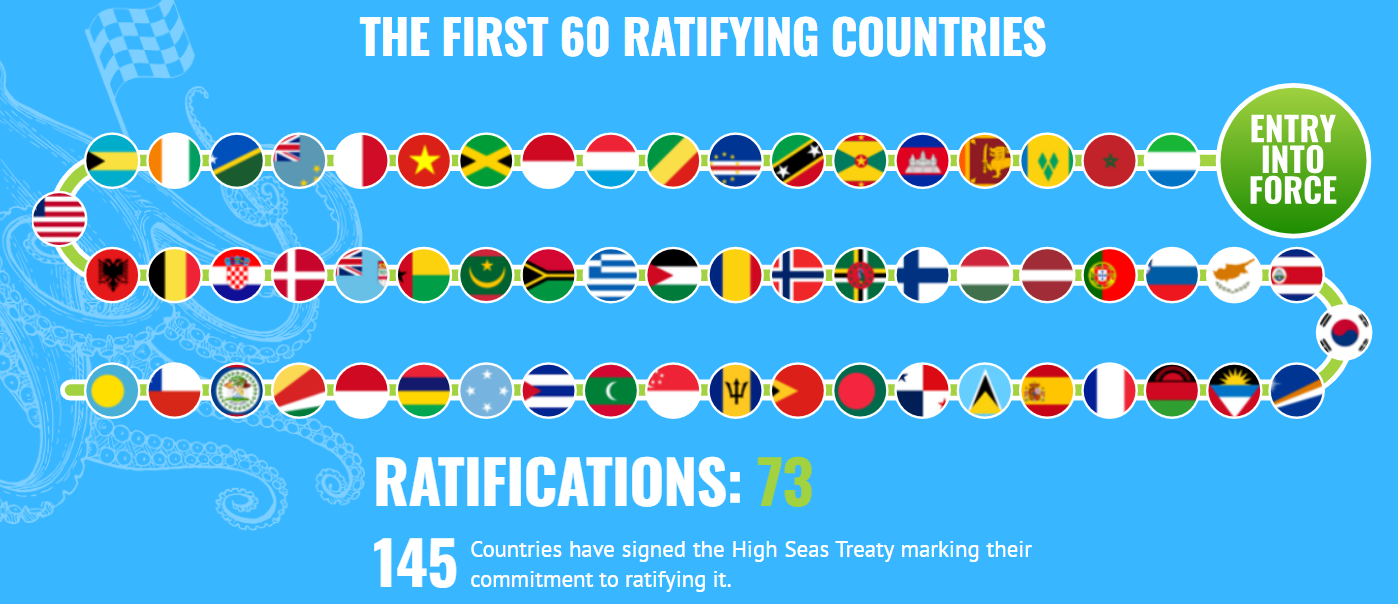The Cook Islands' journey towards protecting biodiversity in the High Seas
Last week, Morocco ratified the “Conservation and Sustainable Use of Marine Biological Diversity of Areas Beyond National Jurisdiction Treaty”. That is quite a mouthful, so it is commonly referred to as the "Biodiversity Beyond National Jurisdiction” (BBNJ) treaty and also known as the High Seas Treaty.
This ratification brought the total number of ratifying countries to 60; this is the number required to bring the treaty into force. Since then, 12 more countries have ratified the treaty. More are expected during this week from the UN General Assembly meeting currently going on in New York The BBNJ treaty will now enter into force in January 2026. While the Cook Islands has signed the treaty, it has not yet ratified it.
You may ask what the difference between signing and ratifying a treaty is. We asked AI and got this informative response: “Signing a treaty indicates a state's initial support and willingness to abide by its terms, while ratification is the formal, binding process by which a state officially agrees to be bound by the treaty's conditions, typically following domestic legal procedures such as legislative approval. Signing is a non-binding expression of intent to continue the treaty-making process. However, this expression of intent in itself is not binding. Only after the Government agrees to be bound by the treaty, and notifies the other parties, is the treaty considered to be ratified by that Government. This is the final legal act that makes the treaty legally binding and effective for the country.”
At a BBNJ treaty local stakeholder meeting held in May this year there was some pressure for the Government to move quickly to ratify the treaty. Crown Law’s advice at the time however was that we first need to review our national legislation to see what may have to change for us to effectively meet our obligations under the treaty. In order to achieve this, the recommendation was to conduct a legislative review to identify what laws may have to change to be consistent with the BBNJ Treaty.
Ratifying the BBNJ treaty is an important step for our ocean. According to the High Seas Alliance (HSA), once in force, the BBNJ Agreement will “enable stronger international efforts to protect our ocean, mitigate climate change, and safeguard the lives and livelihoods of billions of people worldwide.”
According to a National Environment Service (NES) press release, NES has secured funding from the Global Environment Facility (GEF) via the United Nations Environment Programme (UNEP) to support our national efforts to prepare for BBNJ ratification, and to build our collective national capacities to implement our responsibilities under the BBNJ. Some of these funds will be used to appoint a consultant to undertake the legislative review.
Now that there are sufficient ratifications, the first Conference of the Parties (COP) for the BBNJ must be convened within 12 months of the treaty coming into force (in January 2026). So we can expect this to be held late 2026. If the Cook Islands wishes to participate in this first COP as a full partner, they will first need to ratify the treaty.
By being a party to the BBNJ Treaty the Cook Islands can help to ensure the conservation and sustainable use of marine biodiversity in areas beyond national jurisdiction. This is particularly important when considering the Cook Islands is in a joint venture agreement with GSR, a Belgium mining company, who are working under Cook Islands sponsorship on deep-sea exploration activities within areas beyond national jurisdiction. Being a party to BBNJ will ensure activities carried out under this partnership will follow required conservation measures in these waters beyond national jurisdiction.

